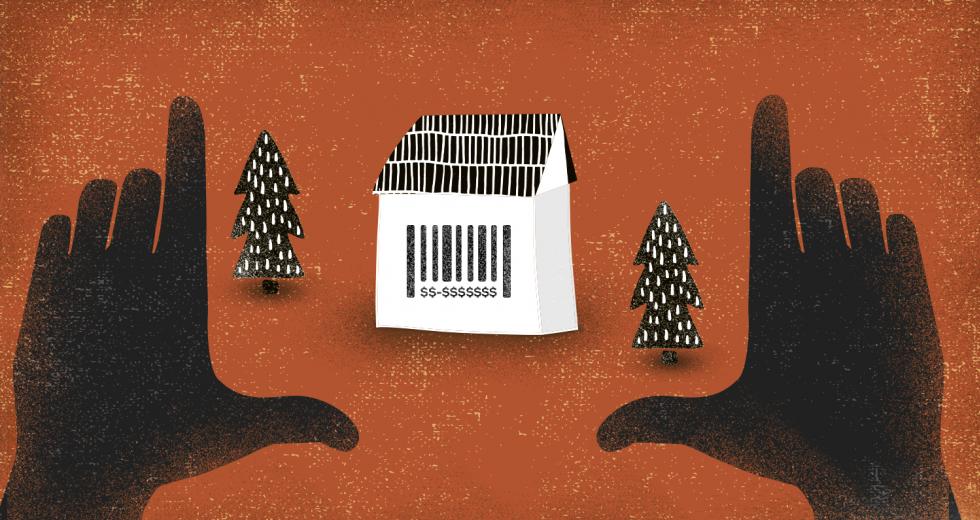The biggest problem in Sacramento real estate last year was overpricing. Sellers seemed trapped in the past and out of sync with what buyers were willing to pay — remembering how quickly prices rose seven years ago, and expecting the same thing.
But the local market has begun to change, so sellers need to stay in touch with current trends and prices. Prices are still up, but they’re not up by as much this year. For years, our region had seen 7-10 percent price upticks like clockwork, but over the past few months we’re seeing 3-6 percent increases instead. Yes, prices are up compared to last year, but the rate of change is shrinking, which tells us the market is slowing down.
Many say the market is going to crash; others say prices will correct by 10 percent; some say it will level off and progress into a state of balance. All three of these ideas have one thing in common: They’re guesses. Unfortunately, my crystal ball is broken. I can’t predict the future, but I can offer you some advice for selling your property in 2019.
Sales are like historical artifacts — they tell us more about the past than the present, showing us what the market was like 30-60 days ago when these properties got into contract.
Here’s the overriding principle to keep in mind: You can hire the best agent in town, stage your home and get the most professional photographs ever, but if you don’t understand the relationship between sales and listings, you may struggle to sell.
Usually people think that sales tell us more than listings about the current market, which seems to make sense because sales are definitive. The price is final. Escrow closed. Buyers and sellers had a meeting of the minds. In contrast, active listings could be priced at any level without ever selling. Listings don’t mean much unless buyers actually end up pulling the trigger.
When people say sales are more meaningful, they’re generally correct. But sales are like historical artifacts — they tell us more about the past than the present, showing us what the market was like 30-60 days ago when these properties got into contract. A home might close escrow today, but it really reflects what prices used to be like when the offer was accepted a month or two ago. So sellers still need to consider current listings.
Related:Overpricing your house makes it a whole lot harder to sell
Let me share a scenario to illustrate what I mean. Imagine when the housing market collapsed in 2007. The median price for a home in the Sacramento region dropped 18.5 percent in just four months at the end of 2007. Those were dark days and prices were changing so rapidly that sales were quickly out of date by the time they closed. In other words, focusing on the sales during a market like that made it really easy to overprice, since recent sales were simply much higher than anything currently getting into contract.
Fast forward to today: Values are not plummeting like 2007, but the same principle holds true. We have to give proper respect to listings, specifically the ones getting into contract. After all, the market could be different today than it was just a few months ago, and we’ll see the price difference in the listings more than anything.
So, with that principle in mind, here are my three big tips for pricing your house in 2019:
- Don’t forget the listings: At the end of summer and fall last year, we had a dull season where prices really softened, and many sellers struggled with tunnel vision. It’s as if they could only see the highest sales from the spring rather than quite a few listings that were no longer getting offers, indicating the market had changed. When finding listings, ask yourself these two questions: Are buyers biting at price levels for current listings? Are they getting into contract at higher or lower levels than recent sales?
- Be objective about your home: It’s not enough to watch the listings in your neighborhood. You’ll want to really be honest about the houses that are similar. To gauge whether something is similar, you can walk through an open house, study photos online or ask your agent’s perspective. This helps you know your competition, and when listings change their status to “pending” it’s a clue into the sweet spot where buyers are willing to make an offer — whether higher or lower than recent sales.
- Don’t price based on overpriced homes: You see Karen’s house down the street and think, She’s priced at $550,000 and my house is better, so I’m going to price higher. But if Karen’s house isn’t going into contract because it’s priced too high, don’t borrow Karen’s mistake in the name of competition by overpricing your own home. Not sure if Karen’s home is overpriced? Once again, you can ask your agent’s perspective.
I know it’s different to talk so much about focusing on listings because we’re so used to thinking sales mean everything. But if your plan is to avoid the problem of overpricing that plagued our market last year, you can’t afford to ignore the listings.



